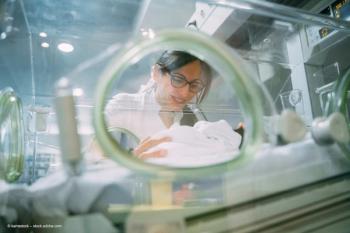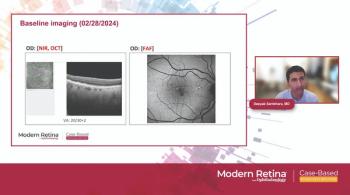
Belite Bio doses the first patient at the Tokyo Medical Center in the Phase 2/3 DRAGON II clinical trial
Tinlarebant is an oral therapy designed to reduce the accumulation of vitamin A based toxins that cause retinal disease.
Belite Bio, Inc has dosed the first patient at the Tokyo Medical Center in the Phase 2/3 portion of the DRAGON II clinical trial evaluating Tinlarebant for the treatment of STGD1. The Phase 2/3 study will evaluate the efficacy, safety, and tolerability of Tinlarebant in approximately 60 adolescent STGD1 subjects across the US, UK, and Japan.1
In the company’s press release1, Dr. Tom Lin, Chairman and CEO of Belite Bio, noted this moment as a key step in reaching an oral therapy for Stargadrt disease, saying, “We are pleased to have successfully dosed the first subject in the Phase 2/3 portion of our DRAGON II trial. This milestone is a significant step forward in our mission to address the unmet needs of people living with Stargardt Disease. We recently completed a Phase 1b study of Tinlarebant in STGD1 patients at the Tokyo Medical Center and are happy to be continuing to partner with them for this next trial. With enrollment now also underway at sites in the US and UK, we are making meaningful progress toward our goal of delivering a life-changing oral therapy to those affected by this condition.”
Professor Kaoru Fujinami, Principal Investigator at National Hospital Organization, Tokyo Medical Center, shared insight on the importance of this trial taking place in Japan, explaining, “DRAGON II is the first global Stargardt disease trial in Japan. As such, it provides the unprecedented opportunity for Japanese patients and their families to gain access to a potential therapy for this historically untreatable disease. The level of interest we have received in this trial speaks to the urgency of the unmet need for patients living with STGD1. Following Tinlarebant’s receipt of Sakigake designation from Japan’s Ministry of Health, we feel well positioned to rapidly advance this trial and are working diligently to get this much needed therapy to patients.”1
The DRAGON II trial is a combination of Phase 1b open-label study in Japan to evaluate the pharmacokinetics (PK) and pharmacodynamics (PD) of Tinlarebant, administered daily for 7 days in Japanese adolescent STGD1 subjects and a Phase 2/3, multicenter (US, UK, and Japan), double-masked, placebo-controlled, randomized study designed to evaluate the efficacy, safety, and tolerability of Tinlarebant, administered daily for 24 months in adolescent STGD1 subjects. Tinlarebant is an oral therapy designed to reduce the accumulation of vitamin A based toxins that cause retinal disease.1
Approximately 60 subjects, from ages 12 to 20 years old, including approximately 10 Japanese subjects, are targeted for enrollment in the Phase 2/3 portion of the trial with a 1:1 randomization (Tinlarebant:placebo). The data from the Japanese subjects is intended to facilitate future NDA applications in Japan.1
In addition to this news, the company has also shared that it will participate in the Maxim Group 2024 Healthcare Virtual Summit. As part of this event, Hendrik P.N. Scholl, MD, MA, Chief Medical Officer of Belite Bio, will participate in the “Ocular Drug Development” panel discussion on Tuesday, October 15, 2024 at 11:00 am ET.2
Reference:
Belite Bio Announces First Patient Dosed in Phase 2/3 DRAGON II Trial of Tinlarebant for the Treatment of Stargardt Disease. Belite Bio, Inc. September 10, 2024. Accessed October 8, 2024.
https://www.morningstar.com/news/globe-newswire/9228198/belite-bio-announces-first-patient-dosed-in-phase-23-dragon-ii-trial-of-tinlarebant-for-the-treatment-of-stargardt-disease Belite Bio to Participate in the Maxim Group 2024 Healthcare Virtual Summit. Belite Bio Inc. October 8, 2024. Accessed October 8, 2024. https://investors.belitebio.com/news-releases/news-release-details/belite-bio-participate-maxim-group-2024-healthcare-virtual
Newsletter
Keep your retina practice on the forefront—subscribe for expert analysis and emerging trends in retinal disease management.







































